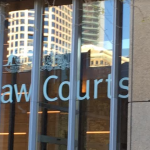Getting Drug Charges Dismissed Due to an Illegal Search

Under sections 21 and 36 of the Law Enforcement (Powers and Responsibilities) Act 2001, police officers in NSW are prohibited from searching individuals, their personal items or their vehicles without a warrant unless they have a suspicion “on reasonable grounds” that:
(a) the person or vehicle have something stolen or otherwise unlawfully obtained,
(b) the person or vehicle have something used or intended to be used in connection with a relevant offence,
(c) the person possesses, or a vehicle in a public place or school contains, a dangerous article that is being or was used in or in connection with a relevant offence, or
(d) the person or vehicle have a prohibited drug or plant.
The sections do not elaborate on the meaning of reasonable suspicion, although the following points have been made by the courts:
(a) A reasonable suspicion involves less than a reasonable belief but more than a possibility, that the drugs were present at the particular time,
(b) Reasonable suspicion is not arbitrary. Some factual basis for the suspicion must be shown, and
(c) The source of the officer’s information and its content must be assessed in light of all surrounding circumstances.
See paragraph 53 of R v Rondo (2001) 126 A Crim R 562.
There has been much debate about what amounts to reasonable suspicion and, although the issue has not yet been settled by the higher courts there is an argument that a positive indication by a sniffer dog is not enough, by itself, to provide a sufficient basis for a search.
Indeed, that was the advice of Queen’s Counsel to the NSW Ombudsman in the context of the latter’s report into the effectiveness of drug detection dog operations.
“Given the low rate of detecting drug offences following a drug detection dog indication, it is our view, supported by Senior Counsel’s advice, that it is not sufficient for a police officer to form a reasonable suspicion that a person is in possession or control of a prohibited drug solely on this basis”, Queen’s Counsel advised.
Given the current state of the law, there is an argument that situations which may not amount to a ‘reasonable suspicion’ include:
- where there is a positive indication by a sniffer dog, in the absence of other evidence suggestive of drug possession,
- where police are patrolling a known drug area and decide to search someone because they appear to be nervous,
- where a person is stopped for a Random Breath Test and appears to be nervous or agitated,
- where police decide to search someone because he or she – or someone he or she is with – has previously been convicted of drug offences, or
- any ‘random’ or ‘arbitrary’ search.
Situations which may amount to a ‘reasonable suspicion’ include:
- where police have observed what they believe to be a drug transaction,
- where police have received a report of recent drug activity including a detailed description which matches the suspect and/or vehicle to be searched, or
- where a person’s actions and demeanour are highly suggestive of drug possession, eg if a person is observed discarding or concealing an object.
Issue of consent
There is case law to suggest that an otherwise illegal search will be rendered legal where the subject of the search provides “informed consent”.
For that reason, it is always best to politely decline a search when police advise they intend to conduct one.
This can be done by simply saying words to the effect of, “I respectfully decline consent to a search”.
Always remain calm and otherwise cooperate with police.
Getting charges withdrawn or thrown out of court
Section 138 of the Evidence Act 1995 contains a “discretion to exclude improperly or illegally obtained evidence”.
It provides that:
(1) Evidence that was obtained:
(a) improperly or in contravention of an Australian law; or
(b) in consequence of an impropriety or of a contravention of an Australian law;
is not to be admitted unless the desirability of admitting the evidence outweighs the undesirability of admitting evidence that has been obtained in the way in which the evidence was obtained.
In making that assessment the courts will look at the follow matters:
(a) the probative value of the evidence;
(b) the importance of the evidence in the proceeding;
(c) the nature of the offence,
(d) the gravity of the illegality,
(e) whether it was deliberate or reckless; and
(f) whether it breaches the International Covenant on Civil and Political Rights; and
(g) whether any other proceedings may be taken in relation to the illegality; and
(h) the difficulty (if any) of obtaining the evidence without the illegality.
In the event that the illegality is serious – as in the case of an illegal search – a lawyer may write to the prosecution highlight this fact and requesting that the proceedings be discontinued. This letter is known as ‘representations’ and should be followed up with negotiations for withdrawal.
If the prosecution nevertheless continues with the case, a lawyer may call for a ‘voir dire’ (a hearing within a hearing) in court to determine whether the illegally obtained evidence should be excluded.
As the finding of drugs is often the primary evidence in proceedings for drug possession or drug supply, the exclusion of that evidence will usually be fatal to the prosecution case.
If that is so, the proceedings will fail, the charge/s will be dismissed and the defence will be at liberty to make an application for the prosecution to pay the defendant’s legal costs.






